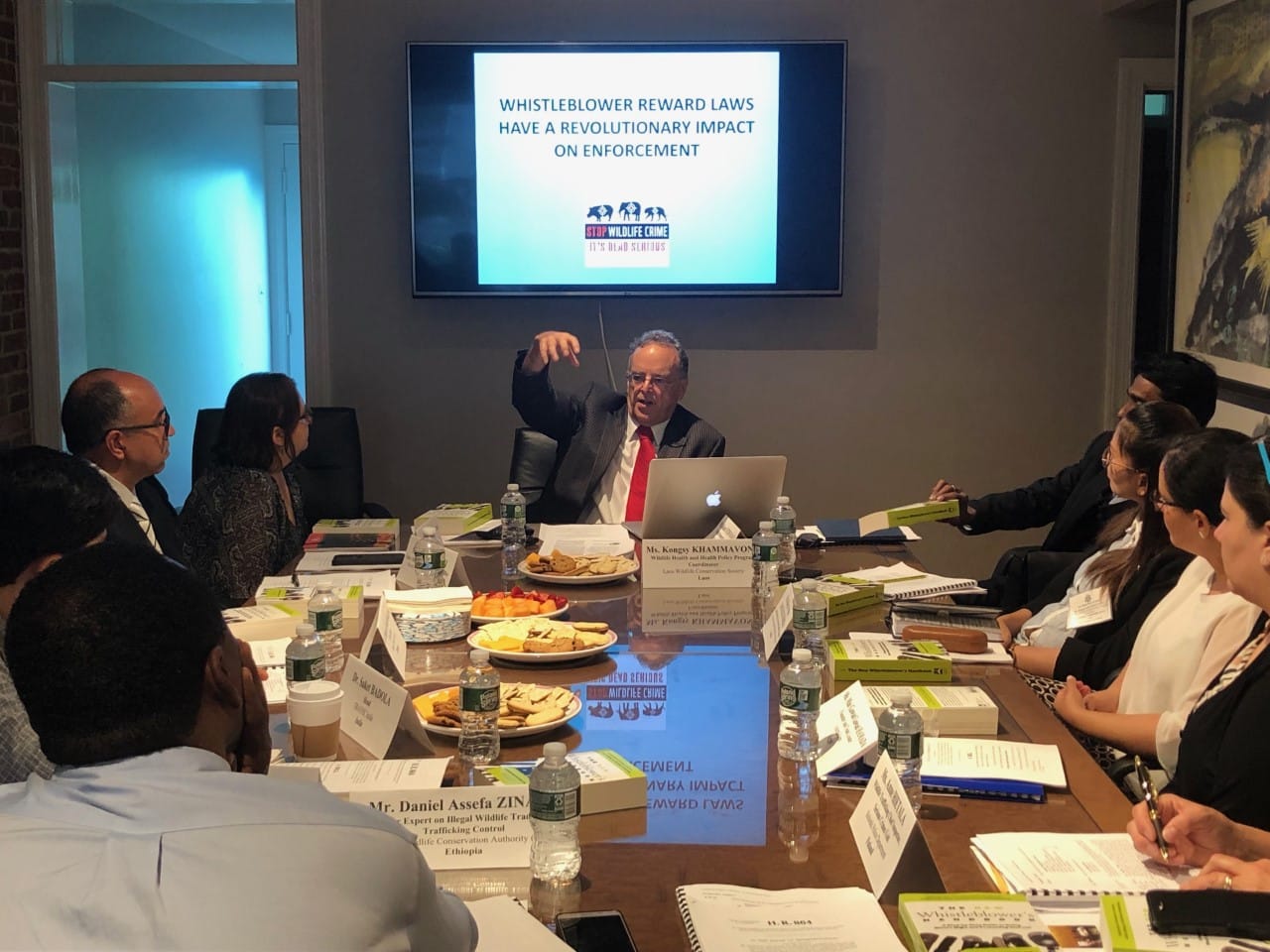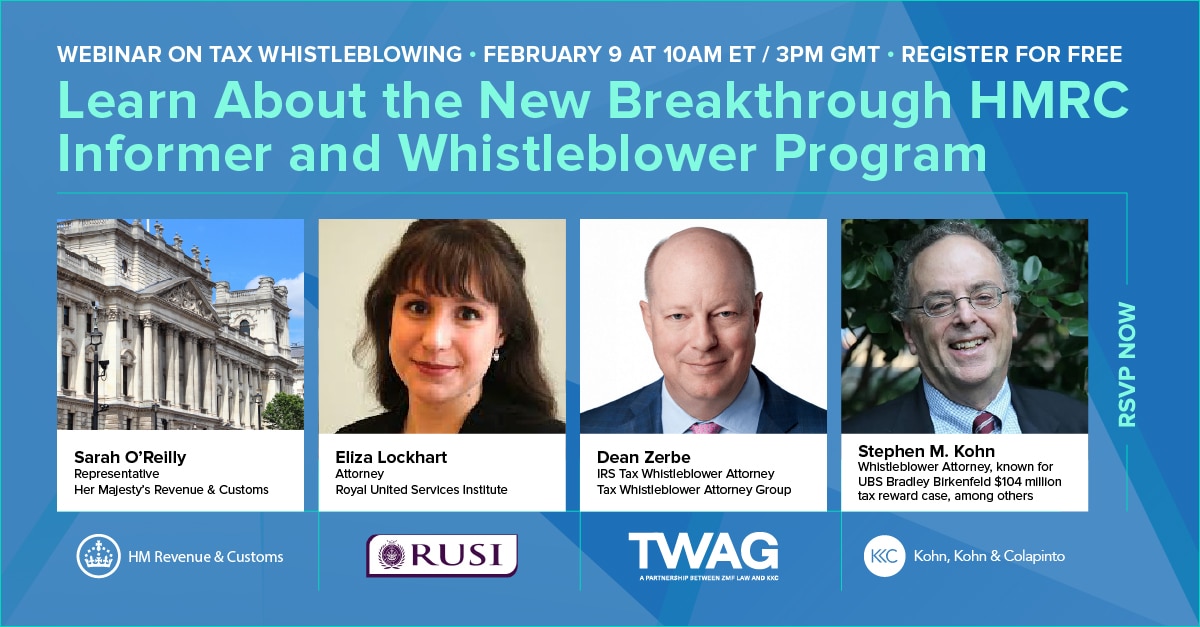International Wildlife Advocates Learn How U.S. Anti-Corruption Laws Fight International Corruption

Recently, leading whistleblower attorney Stephen M. Kohn met a group of international visitors to discuss the use of U.S. Anti-corruption laws in the fight against illegal wildlife trafficking.
The qui tam provisions of the False Claims Act allow whistleblowers with evidence of crimes to collect rewards on behalf of the United States government based on their findings. From 1986-2017, sanctions from whistleblower cases raised over $40 billion, with over $6 billion of that going back into the pockets of the whistleblower.
“Whistleblowers need incentives in order to come forward with information of wrongdoing,” Kohn said.
Fortunately for wildlife whistleblowers, several laws exist that feature the same kind of incentive system. Kohn presented two examples of the crucial wildlife protection legislation in the U.S., the Lacey Act, and the Endangered Species Act. These laws include powerful enforcement mechanisms that also reward whistleblowers. Several others now include provisions for whistleblowers as well.
“Is it going to solve wildlife trafficking?” Kohn said of improved whistleblower laws. “No. But is it a proven and effective weapon to combating wildlife trafficking? Yes.”
The guests were taking part in the International Visitor Leadership Program sponsored by the U.S. State Department. They hailed from countries all over the world, including Bangladesh, Tunisia, Laos, Costa Rica, Finland, Ethiopia, Colombia, Tanzania, India, and Namibia.
Latest News & Insights
January 27, 2026




